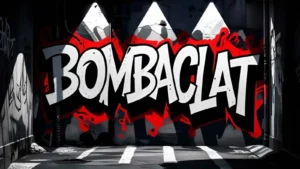Language is power, and knowing the precise meaning and appropriate alternatives to commonly used words like novice can shape how others perceive your skills, maturity, or experience.
In a world where first impressions are often made through digital communication, choosing the right vocabulary—especially in professional and personal contexts—has never been more critical.
The term novice is frequently used across industries and daily conversations, but not everyone knows how nuanced and flexible it is.
Understanding when and how to use it—or replace it with a more polite or fitting alternative—can elevate your communication and ensure you’re seen in the best light possible.
In this article, we’ll cover:
- The meaning of novice in 2025 usage
- What stand for and meaning in text implies
- Polite, professional, and casual alternatives to the word novice
- How to choose the right synonym based on context
- 10 fully written examples for real-world use
- The subtle tone differences between variations
- Modern phrases in 2025 language culture
Let’s get started. 🧠✨
🧾 What Does “Novice” Mean in 2025?
The word novice is traditionally defined as:
“A person new to or inexperienced in a field or situation.”
✔️ 2025 Contextual Use:
In today’s evolving world of tech, AI, freelancing, and digital collaboration, novice doesn’t always carry the negative connotation it once did. In fact, novices are celebrated as learners, innovators, and future experts.
Think of a novice coder, a novice marketer, or even a novice remote worker. These are people on their journey to mastery.
📘 What “Stand For” and “Meaning in Text” Means (Applied to “Novice”)
In language analysis, when we ask:
- What does “novice” stand for? — We’re asking what idea or group this word represents.
- What is the meaning of “novice” in text? — We’re identifying the interpretation based on context.
For example:
- In gaming forums, novice might imply someone who just joined the platform.
- In professional resumes, it may signal someone starting out but with potential and passion.
So, knowing the setting of the text is key to interpreting the word.
🌟 Why Choose an Alternative to “Novice”?
Words carry tone, emotion, and subtext.
Depending on your intention, novice might sound:
- Too blunt for formal communication
- Slightly dismissive in performance reviews
- Or inspirational, if framed positively
Replacing it with a more nuanced or polite synonym can soften your message, enhance clarity, or sound more modern.
🔄 2025 Alternatives to “Novice” (Polite, Professional, and Casual)
Here are ten excellent alternatives with their contextual strengths:
1. Beginner
Use: General or casual conversations
Tone: Neutral and safe
Example: “She’s a beginner in graphic design but learning fast.”
2. Trainee
Use: Corporate or job training settings
Tone: Professional
Example: “Our new trainee will shadow the project manager this week.”
3. Apprentice
Use: Technical trades, crafts, or skills
Tone: Positive, respectful
Example: “He started as a coding apprentice under a senior developer.”
4. Learner
Use: Educational or self-growth spaces
Tone: Encouraging and growth-oriented
Example: “As a lifelong learner, she’s always picking up new skills.”
5. Newcomer
Use: Teams, communities, online platforms
Tone: Welcoming and soft
Example: “Let’s help our newcomers feel at home in the workspace.”
6. Fresh Talent
Use: Resumes, HR, job interviews
Tone: Positive and motivating
Example: “We’re always on the lookout for fresh talent.”
7. Entry-Level Professional
Use: Job market, LinkedIn profiles
Tone: Formal and respectful
Example: “I’m an entry-level professional exploring opportunities in digital marketing.”
8. Prospective Expert
Use: Mentorship, education, training
Tone: Highly encouraging
Example: “Every prospective expert was once unsure and curious.”
9. Greenhorn
Use: Informal, humorous tone
Tone: Light, casual
Example: “I was a total greenhorn when I joined the coding bootcamp.”
10. Early-Stage Practitioner
Use: Medicine, law, professional fields
Tone: Formal, academic
Example: “As an early-stage practitioner, she is gaining hands-on experience daily.”
🧠 How to Choose the Right Word Instead of “Novice”
Let’s break this down:
| Context | Best Alternative | Reason |
|---|---|---|
| Job Interview | Entry-Level Professional | Sounds confident and suitable |
| Personal Growth Blog | Learner | Friendly and growth-oriented |
| Technical Apprenticeship | Apprentice | Shows structured, skill-based learning |
| Company Team Welcome | Newcomer | Warm and inclusive |
| Resume or Portfolio | Fresh Talent | Marketable and upbeat |
🔟 Examples of Using “Novice” Alternatives in Real-World Sentences
Let’s apply the alternatives in realistic sentences. Each one reflects a tone and contextual use:
- “Although I’m just an entry-level professional, I bring strong creative instincts to the table.”
- “She joined our company as a trainee but quickly became a valued team member.”
- “Every expert you admire was once a curious learner.”
- “Our apprenticeship program pairs novices with master artisans.”
- “Fresh talent like yours is exactly what this agency needs.”
- “The newcomers on our team bring refreshing ideas and enthusiasm.”
- “He started as a greenhorn in the kitchen but now runs a food truck empire.”
- “This course is ideal for early-stage practitioners wanting practical skills.”
- “We welcome all beginners to join our open mic night—no judgment!”
- “As a prospective expert in the cybersecurity space, I’m focused on certification and mentorship.”
🎯 Understanding the Tone: Respect vs. Underestimation
Using novice wrongly can sometimes make people feel:
- Inexperienced
- Underestimated
- Marginalized
Pro Tip (2025): Tone is everything. When in doubt, choose a word that:
- Reflects growth
- Shows potential
- Respects the effort
For instance, “learner” and “prospective expert” show intent and growth, while “novice” or “greenhorn” can seem static if not used thoughtfully.
🧭 Language Trends in 2025: What’s In, What’s Out
✅ In:
- Growth mindset words like learner, aspiring, emerging expert
- Human-first tones: empathetic, encouraging, respectful
- Job-market clarity: entry-level professional instead of just novice
❌ Out:
- Overused labels that sound generic or belittling
- Lazy descriptions like “noob” (too informal, even in gaming)
🧩 Summary: What You Should Remember
- Novice means someone new or inexperienced, but it carries different tones in different contexts.
- Always analyze the situation: Is it formal? Casual? Encouraging? Evaluative?
- Replace novice with smarter alternatives when necessary:
- Beginner, trainee, apprentice, learner, etc.
- Examples matter: use relatable, real-life phrases to sound authentic.
- Keep tone respectful and optimistic—it’s 2025, and people value intentional language.
Final Thoughts 📈
Words matter—especially when they describe people. Whether you’re referring to yourself or someone else, using alternatives to “novice” allows you to communicate with more tact, clarity, and impact.
So the next time you’re introducing yourself, writing a resume, or giving feedback, skip the generic “novice” label and choose a word that elevates.
Remember: language doesn’t just describe—it shapes how we’re perceived.










